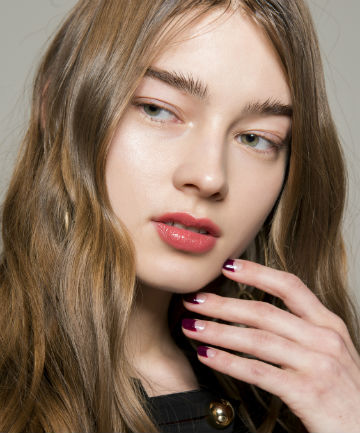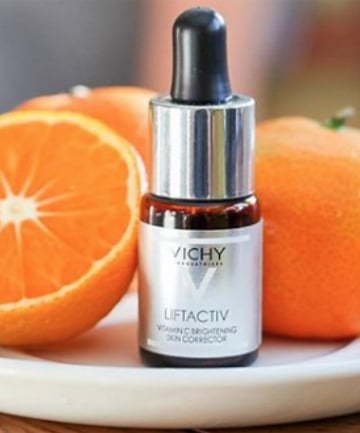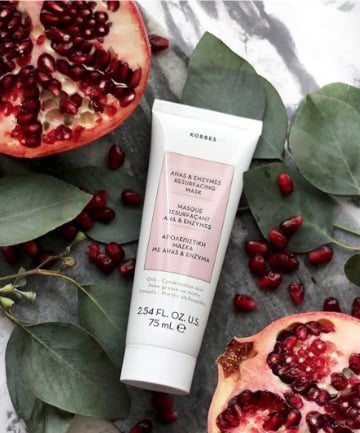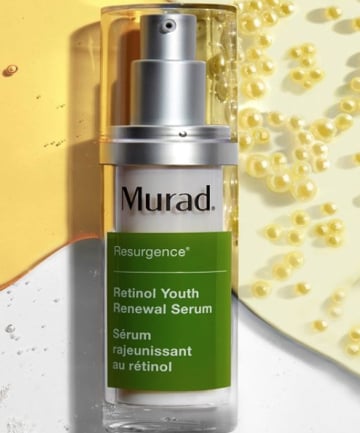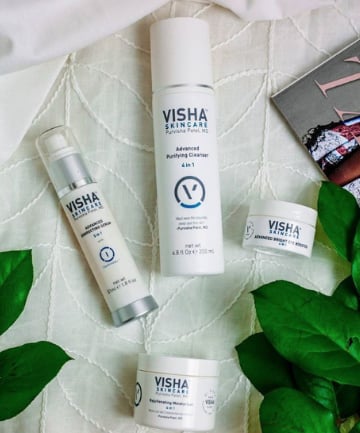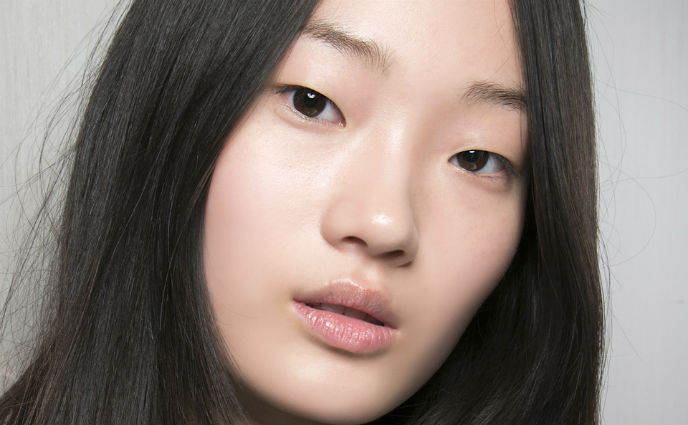Building the perfect skin care routine is as much an art as it is a science. Speaking of science, have you ever worried that you're creating the perfect storm of active ingredients that will conspire together to burn your face off?
Maybe that's a little extreme, but you still have to wonder: Can your favorite glow tonic and your favorite retinol serum play nicely together? Can you mix a potent vitamin C serum with a glycolic acid-packed cleanser? All of the possible combinations and nuances can get a bit confusing so we talked with two board-certified dermatologists, Dr. Mona Gohara and Dr. Purvisha Patel, to learn how best to mix our favorite skin care ingredients. Keep reading for their dos and don't's.
Image via Imaxtree
Maybe that's a little extreme, but you still have to wonder: Can your favorite glow tonic and your favorite retinol serum play nicely together? Can you mix a potent vitamin C serum with a glycolic acid-packed cleanser? All of the possible combinations and nuances can get a bit confusing so we talked with two board-certified dermatologists, Dr. Mona Gohara and Dr. Purvisha Patel, to learn how best to mix our favorite skin care ingredients. Keep reading for their dos and don't's.
Image via Imaxtree
Can they be mixed? Yes, with reservations
Two of the hottest skin care ingredients of the moment might be a little too harsh to be used together, so Gohara actually recommends using them in different parts of your routine. "I like using vitamin C in the morning, right after I get out of the shower, and use a retinol at night," she says. Since "ultraviolet light can inactivate retinol" and "Vitamin C makes a good warrior against free radicals you come in contact with during the day," you get the best of both worlds that way. Gohara notes that this logic holds true for other antioxidants as well.
Image via @vichyusa
Two of the hottest skin care ingredients of the moment might be a little too harsh to be used together, so Gohara actually recommends using them in different parts of your routine. "I like using vitamin C in the morning, right after I get out of the shower, and use a retinol at night," she says. Since "ultraviolet light can inactivate retinol" and "Vitamin C makes a good warrior against free radicals you come in contact with during the day," you get the best of both worlds that way. Gohara notes that this logic holds true for other antioxidants as well.
Image via @vichyusa
Can they be mixed? Yes
Vitamin C is also known as ascorbic acid, which begs the question: Is it overdoing it to mix it with your favorite acid toner? Gohara gives you the go-ahead, though watch for overdrying.
Image via @korres.skincare
Vitamin C is also known as ascorbic acid, which begs the question: Is it overdoing it to mix it with your favorite acid toner? Gohara gives you the go-ahead, though watch for overdrying.
Image via @korres.skincare
Can they be mixed? No
Though they're cornerstone ingredients in a lot of skin care routines, you might want to avoid mixing your retinols and AHAs. "Retinols and AHAs may be too irritating to layer on top of each other," cautions Gohara. Patel adds that strong concentrations can "cause increased skin peeling and even redness/irritation."
Image via @muradskincare
Though they're cornerstone ingredients in a lot of skin care routines, you might want to avoid mixing your retinols and AHAs. "Retinols and AHAs may be too irritating to layer on top of each other," cautions Gohara. Patel adds that strong concentrations can "cause increased skin peeling and even redness/irritation."
Image via @muradskincare
Can they be mixed? Yes
You've probably noticed that antioxidants vitamin C, vitamin E and ferulic acid are often used together — and that's because the addition of ferulic acid actually helps stabilize the vitamins C and E while also boosting their efficacy. Throw just the right amount of retinol in there and you're really cooking with gas — though it's worth pointing out that Patel recommends searching for a product that combines them (like Visha Skincare Advanced Correcting Serum with Illuminotex) rather than trying to layer them together yourself.
Image via @vishaskincare
You've probably noticed that antioxidants vitamin C, vitamin E and ferulic acid are often used together — and that's because the addition of ferulic acid actually helps stabilize the vitamins C and E while also boosting their efficacy. Throw just the right amount of retinol in there and you're really cooking with gas — though it's worth pointing out that Patel recommends searching for a product that combines them (like Visha Skincare Advanced Correcting Serum with Illuminotex) rather than trying to layer them together yourself.
Image via @vishaskincare


